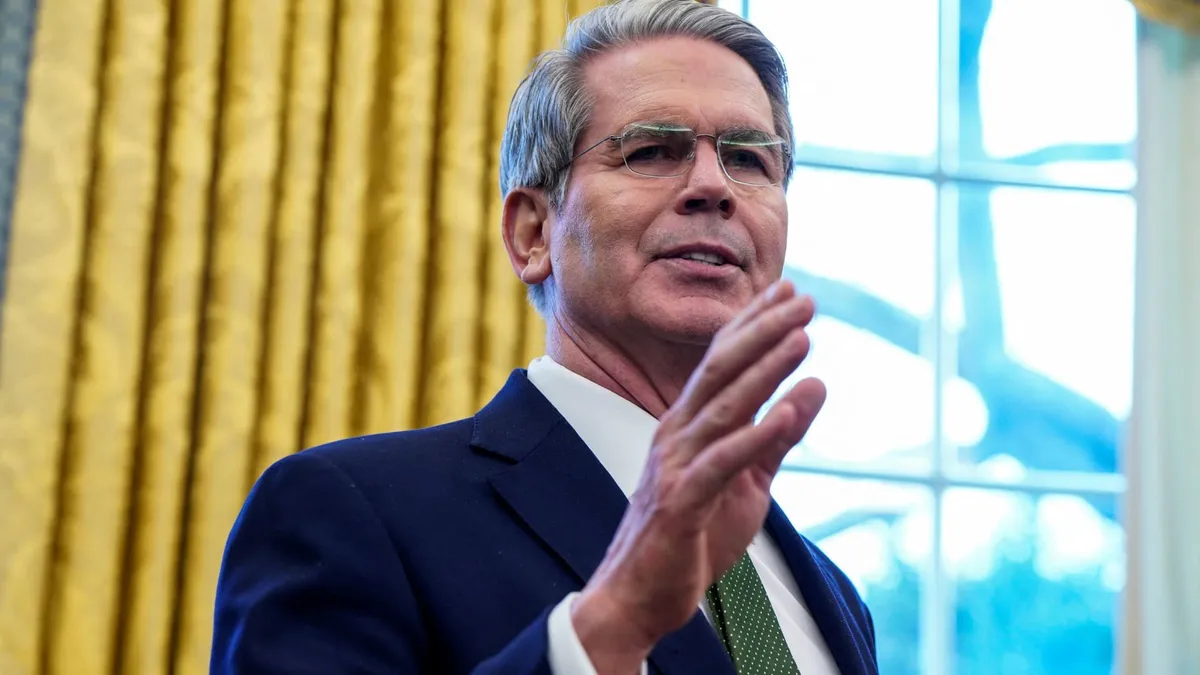
Treasury Secretary Scott Bessent stated on Sunday that President Donald Trump’s proposed tariffs are unlikely to result in a significant rise in inflation. Bessent's remarks come just two days ahead of the tariffs set to take effect on Tuesday, which are aimed at imports from Mexico and Canada.
President Trump is expected to impose a substantial 25% tariff on imports from Mexico and Canada. Additionally, he has announced a further 10% duty on Chinese imports, which is on top of the 10% tariff that was levied earlier on February 4. These measures have raised concerns among economists who worry that the tariffs could lead to an increase in inflation and keep interest rates elevated well into 2026.
In an interview on CBS's Face the Nation, Bessent was queried about the potential impact of the tariffs on the average American household. He emphasized the unpredictability of the situation, stating, “We don’t know yet because it’s path-dependent.” However, he expressed confidence regarding China's response to these tariffs, asserting, “I’m not worried about China. China will pay for the tariffs because their business model is exporting their way out of this inflation. They will eat any tariffs that go on.”
In response to the proposed tariff hike, China's Ministry of Commerce declared on Friday that it firmly opposes Trump's actions and is prepared to retaliate as necessary. Following the initial round of tariffs imposed by the U.S. in February, China had already responded by increasing duties on specific U.S. energy imports and placing two American companies on an unreliable entities list. Experts predict that similar countermeasures could be expected after the introduction of the new tariffs.
Bessent was also asked about his previous comments regarding Mexico's proposal to match U.S. tariffs on China to avoid being adversely affected by Trump's tariffs. He noted that the Mexican leadership has shown willingness to cooperate, stating, “We’ll see. The Mexican leadership has offered to do that.” However, he mentioned that there had been no communication from Canada yet but suggested that a similar proposal from Canada would be beneficial. He concluded, “I think that would be a very good start.” Bessent hinted that announcements from these countries could emerge on Tuesday, right before the tariffs are enacted, or they may wait to see the implications of the tariff wall going up.
As the situation unfolds, the economic landscape remains uncertain, with critical implications for trade relations between the U.S., China, Mexico, and Canada. The upcoming tariff implementations and potential reactions will likely play a significant role in shaping the future of U.S. economic policies.